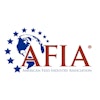
The Surface Transportation Board (STB) issued final rules that strengthen its power to act during rail service emergencies on Jan. 24, 2024. The final regulations contain several reforms advocated for and supported by the National Grain and Feed Association (NGFA).
Proposed by the Board in 2022, the regulations for “expedited relief in service emergencies” address several flaws and hurdles in previous emergency service order rules.
Reforms supported by the NGFA and included in the final rules are:
- Removal of the requirement that a shipper’s petition for alternative rail service contains a commitment from another available railroad. “The Board has correctly concluded…that these requirements have posed a nearly insurmountable hurdle to rail shippers who are considering seeking this emergency relief for rail service failures,” NGFA noted.
- A shortened process for petitions for emergency service orders and a date by which a Board decision can be expected. “In most cases, the Board can expect shippers to have attempted to exhaust all available commercial remedies prior to seeking Board intervention, often at significant cost to the shipper,” NGFA stated. “Since an STB emergency service order is typically the ‘last resort’ for a rail shipper before severe damage to its business and customers occurs, a short timeline for submitting the petition and rendering a decision is imperative.”
- An accelerated process to handle acute service emergencies presenting potential imminent harm and threatening potentially severe adverse consequences.
- A continuation of the policy to not include any bright-line prohibition on applying relief to contract traffic.
“The final emergency service rules issued today demonstrate that the Board has closely studied and thoughtfully considered the comments of industry stakeholders,” NGFA stated. “These changes will advance the efficiency of the U.S. rail system by enabling the Board to order temporary relief in emergencies more quickly and effectively and to more rapidly ensure that localized problems do not spread to other parts of the rail network, while also providing more certainty that acute issues can be resolved.”

















